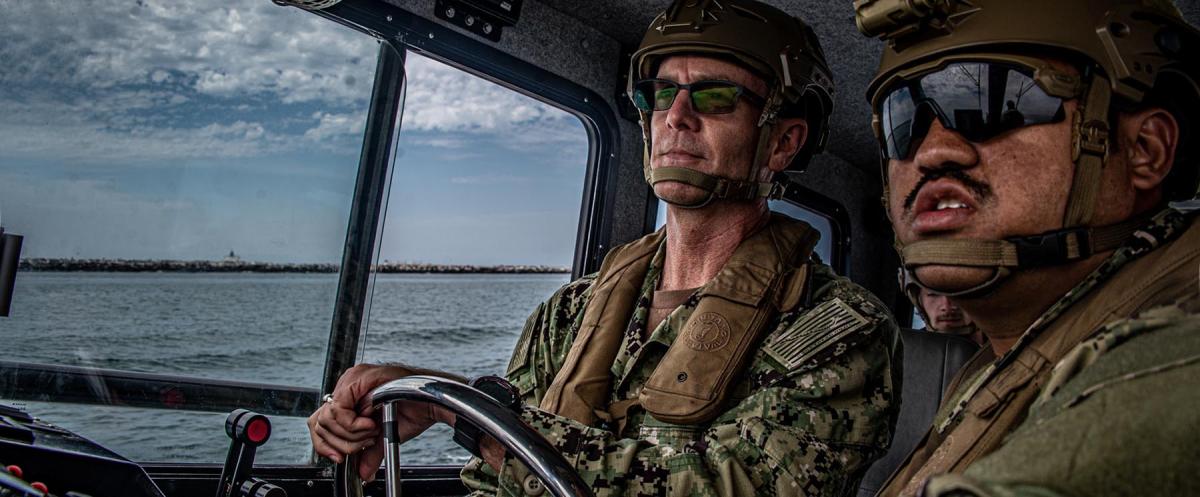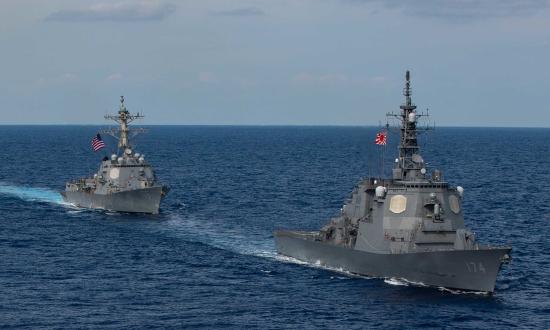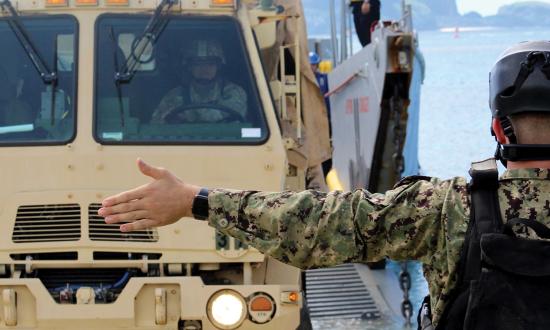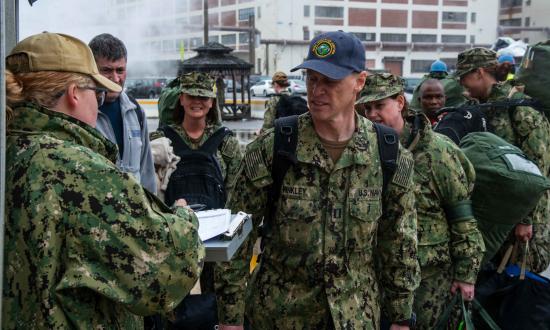The Navy Reserve information warfare community (IWC) and, more specifically, the Reserve intelligence officer corps are having difficulty retaining talent. Look no further than the FY23 Selective Reserve Officer Recruiting and Retention Incentive Program that offers lieutenants $12,000 per year for three years to stay in the Reserves.1 At a critical time in the nation’s history, as U.S. competitive advantages are eroding, it is crucial that the Navy Reserve find ways to recruit, assess, and retain talented intelligence professionals who bring critical skills needed in future fights. Vice Admiral John Mustin, Chief of the Navy Reserve, understands the importance of reevaluating the Reserves as evidenced by his remarks, “we are training you to do a job, one that we’re going to need you to do in competition and conflict. We are wringing every iota of efficiency out of every minute and every training dollar that you receive, and some of our operational forces demand longer tours to realize a meaningful return on that investment.” While change is happening in the Reserves, there is still an opportunity to do more.
Career tracks for intelligence officers are mostly predetermined and follow a standard path with minimal room for deviation, but there are three ways the Navy can improve retention of talented intelligence officers and negate the need for bonuses: Offer more flexible drilling schedules; approve a Career Intermission Program (CIP); and build specialty career tracks.
More Units with Flexible Drilling
The “one weekend a month, two weeks per year” model works for some Reservists with flexible civilian careers but, increasingly, many talented Reservists separate from the Navy because it has impeded their civilian careers and family life. In one example, a prior enlisted intelligence specialist who was commissioned and completed five deployments in support of the Reserve is separating because he cannot attend drill and execute the duties of his civilian career, which supports U.S. citizens escaping from conflict zones, most recently in Afghanistan and Ukraine. Another friend was an active-duty officer with multiple high-profile assignments. She left active duty to work for a national security startup but is having difficulty balancing extensive work travel with the Reserves. Both officers have significant operational experience and leadership qualities that the Navy can ill afford to lose. Finding ways to provide alternative drill opportunities would go a long way toward their retention.
Fortunately, the Navy already has a solution, but it needs to be scaled up to offer maximum impact. The Reserve IWC has some flex-drilling units that meet quarterly or biannually, but the majority follow the traditional construct. Drilling one weekend per month allows scant time for Reservists to conduct intelligence production and offers little to no interaction with their active-duty and civilian counterparts. With all the other administrative requirements needed to keep sailors ready to mobilize, the Navy is missing an opportunity to increase training, collaboration, and production. Providing more options that leverage a quarterly model would be less disruptive to Reservists’ schedules and allow them to work side-by-side for six consecutive days with their active-duty and civilian counterparts, attend briefings, stand watches, and experience other professional development opportunities. Creating synergies between Reserve and active commands builds trust, identifies deficiencies in preparedness that can be addressed prior to activation, and leads to a more fulfilling experience for Reservists who want to gain experience and drive impact. To meet Reserve requirements, the first quarterly drill weekend could be devoted to getting fully medically and administratively qualified. This would allow the other three drill weekends and annual training to be focused on gaining command interoperability and improving skills. Some units have effectively employed this model providing Reservists with additional options outside the traditional model.
Implement a Reserve Career Intermission Program
The 1999 movie Office Space coined a phrase Reservists know all too well. “I have eight bosses, Bob,” perfectly encapsulates the competing demands on sailors. Balancing family, a civilian career, and the Reserves can be a herculean effort and at times the Navy can forget that most sailors prioritize their lives in that order. Having the CIP in the Reserves would give officers an option to remain in the Navy while allowing them to pursue other goals in the interim.
The Navy’s CIP helps retain high-performing active-duty sailors while allowing them to rebalance their lives during a two-year intermission from the Navy. Reserve intelligence officers have diverse careers that provide significant return on investment for the Navy and strengthen the force. Providing Reservists a CIP option to invest in their civilian career, while not separating from the Navy, would improve talent retention and demonstrate a commitment to sailors. Reservists could report to their units or Navy Operational Report Center for three to four days each calendar year to complete medical, administrative, and physical fitness requirements to ensure wartime mobilization readiness while minimizing impact on their personal lives. U.S. allies also see the value in a CIP-like model. The Royal Navy provides Reservists options for a leave of absence up to six months and extended leave of absence for one year or more to accommodate changes in family or employment circumstances.
Create Specialty Tracks
For the past 20 years, Navy Reserve intelligence professionals have played a disproportionate role in the global war on terror. In 2016, Reservists filled approximately 78 percent of the IWC’s total force independent augmentation requirements, far outpacing their active-duty counterparts. From those experiences, and through their civilian careers, Reservists have accumulated significant institutional knowledge that is now languishing for want of career enhancing assignments. To promote in the Reserves, however, it is important for intelligence officers to have diverse experiences and roles within their units, particularly as the training officer, administrative officer, and executive officer. Intelligence disciplines, such as collection management, imagery interpretation, and targeting, are less vital for promotion in the current construct. This emphasis on Reserve unit management over intelligence expertise causes talented subject-matter experts who want to stay in a field to leave the Navy because there are fewer possibilities for advancement and, if they fail to get promoted, they will be administratively separated. Providing talented officers with additional specialty pathways will allow the Navy to retain experts who want to become masters of certain disciplines.
Of course, the counterpoint to this argument is that naval officers have a responsibility to be officers first and specialists second. However, the Navy can foster specialists in the officer ranks who can still lead Reserve sailors alongside others who want a more diverse experience. The IWC already has seen the value in creating specialty paths with the formation of the Maritime Space Operations (MSO) career path. The MSO designator was established to “leverage the unique talents of our personnel to ensure the Navy keeps pace with the rapidly maturing government and Department of Defense space enterprise.” These officers will be critical to any future conflict, and the IWC has made that clear by prioritizing building a cadre of subject-matter experts. The Reserves have an opportunity to work with the active component to identify disciplines where such subject-matter expertise and specialization are required and create space for officers to pursue career in that specialty. The Bipartisan Policy Center argues that the Reserve component is better positioned to contribute immediately to specialized areas by leveraging civilian skills. Creating specialists with deep expertise in critical areas identified by the Navy would help retention and be useful in future conflicts.
The IWC stands at a crossroads as it shifts focus toward integrated deterrence after 20 years of focusing on counterterrorism. Intelligence officers will play an important role in the future fight, and finding ways to retain and upskill midgrade officers is essential to building a foundation for the future.
1. FY23 Selected Reserve Officer Recruiting and Retention Incentive Program.






